How to Choose the Right Healthcare Payment Solution for Your Practice
Choosing the right healthcare payment solution is crucial for the success of your practice. Whether you operate a small clinic or a large hospital, the payment system you implement can significantly affect your revenue cycle, patient satisfaction, and overall operational efficiency. This blog will guide you through the essential factors to consider when selecting a healthcare payment solution, helping you make a choice that benefits both your practice and your patients.
Understanding Healthcare Payment Solutions
Healthcare payment solutions refer to various software and systems designed to facilitate the processing of payments within the healthcare sector. These solutions manage everything from patient billing to insurance claims, ensuring a streamlined financial process.
Key Components of an Effective Healthcare Payment Solution
- Patient Billing: This function generates invoices and manages patient payments, making it easier for healthcare providers to track what patients owe. Automated billing can also remind patients of upcoming payments and outstanding balances, reducing the risk of delayed payments.
- Insurance Verification: A critical aspect that confirms patient insurance coverage and benefits before treatment begins. This process can significantly reduce the likelihood of denied claims, saving time and resources.
- Payment Processing: This component handles transactions securely and efficiently, whether they occur online, over the phone, or in person. It is crucial to choose a solution that offers multiple payment options, including credit cards, debit cards, and electronic checks.
- Reporting and Analytics: This feature offers insights into financial performance and payment trends, allowing practices to make data-driven decisions. By analyzing payment data, practices can identify areas for improvement and optimize their revenue cycle management.
The Importance of Choosing the Right Solution
Selecting the appropriate healthcare payment solution can lead to improved cash flow, reduced administrative burdens, and enhanced patient experiences. A well-integrated system minimizes errors and accelerates payment collection, which is vital for maintaining the financial health of your practice. Here are some reasons why the right choice matters:
- Operational Efficiency: The right system streamlines your operations, reducing time spent on billing and payment processing. A more efficient process allows your staff to focus on patient care instead of paperwork.
- Financial Stability: Improved payment collection practices lead to better revenue management, ensuring your practice remains financially viable. This stability enables you to invest in new technologies, hire additional staff, or expand your services.
- Patient Satisfaction: A smooth payment process increases patient trust and satisfaction, which can lead to better patient retention and referrals. When patients have a positive experience, they are more likely to recommend your practice to friends and family.
- Compliance and Risk Management: Selecting a healthcare payment solution that adheres to regulatory standards can help mitigate the risk of compliance violations, protecting your practice from potential legal issues.
Read it also: Processing Payments for Professional Services Made Easy
Key Factors to Consider When Choosing a Healthcare Payment Solution

When evaluating various healthcare payment solutions, consider the following aspects carefully:
1. Integration Capabilities
One of the most critical aspects to consider is how well the healthcare payment solution integrates with your existing Electronic Health Record (EHR) and practice management systems. A seamless integration enables real-time data sharing, reduces the need for manual entry, and enhances overall efficiency. Look for solutions that offer:
- APIs for Custom Integration: Ensure that your payment solution can connect with your current systems without significant modifications. This adaptability can save you time and money in the long run.
- Compatibility with Major EHRs: The solution should work well with widely used EHR platforms, minimizing disruptions during implementation. Confirm that your preferred payment solution has been tested and proven compatible with your EHR.
2. Security Features
Given the sensitivity of healthcare data, security is paramount. Your healthcare payment solution should comply with industry standards, such as HIPAA, and offer robust encryption methods to protect patient information. Consider the following security measures:
- Data Encryption: Look for solutions that provide strong encryption for data at rest and in transit. This protection is essential for safeguarding sensitive patient information against breaches.
- Regular Security Audits: Ensure the provider conducts regular security audits to identify and address vulnerabilities. A commitment to ongoing security improvements is critical in an ever-changing threat landscape.
- User Authentication: Multi-factor authentication can add an extra layer of security, ensuring that only authorized personnel can access sensitive financial data.
3. User-Friendly Interface
A solution with an intuitive interface ensures that both your staff and patients can navigate the system with ease. A user-friendly healthcare payment solution will reduce training time and improve overall satisfaction. Consider solutions that offer:
- Simplified Payment Processes: Ensure that patients can easily understand their bills and payment options. A clear and concise billing statement helps reduce confusion and frustration.
- Mobile Accessibility: A mobile-friendly platform allows patients to make payments and manage their accounts from anywhere. Given the rise of telehealth and remote services, mobile access is becoming increasingly important.
- Training Resources: Choose a provider that offers comprehensive training resources, including tutorials and live support, to help your team get up to speed quickly.
4. Cost Structure
Understanding the pricing model of each healthcare payment solution is vital. Some charge a flat monthly fee, while others take a percentage of each transaction. Assess your practice’s size and transaction volume to determine which model suits you best. Here are some common pricing structures:
- Flat Monthly Fee: Ideal for practices with consistent transaction volumes. This model provides predictability in budgeting for your practice’s expenses.
- Percentage-Based Fees: Better for practices with fluctuating patient volumes. However, be mindful of how fees can accumulate during peak seasons, potentially impacting your cash flow.
- Hidden Fees: Always ask about additional fees for services such as chargebacks, monthly statements, and account maintenance to avoid unexpected costs.
5. Customer Support
Reliable customer support is crucial, especially during implementation and for troubleshooting. Look for providers that offer 24/7 support and comprehensive training resources. Evaluate the following:
- Availability: Check if the support team is accessible outside of normal business hours. A responsive support team can quickly resolve issues that may disrupt your operations.
- Training Resources: Look for providers that offer training sessions and extensive documentation to help your team get up to speed quickly. Well-prepared staff can maximize the potential of the new payment solution.
- Feedback Mechanism: Ensure the provider has a system for collecting user feedback to continuously improve their services. Regular updates based on user input can enhance your experience with the solution.
Read it also:- How to Choose the Best Card Processing System for Your Business
Comparing Healthcare Payment Solutions
To help you evaluate your options effectively, here’s a simple table comparing common healthcare payment solutions based on key features:
| Feature | Solution A | Solution B | Solution C |
|---|---|---|---|
| Integration | EHR & PM Systems | EHR only | EHR, PM & Custom APIs |
| Security | HIPAA Compliant | Standard Encryption | Advanced Encryption |
| User Interface | User-Friendly | Moderate Learning Curve | Intuitive Design |
| Cost Structure | $100/month | 2% per transaction | $50/month + 1% fee |
| Customer Support | 24/7 | Business Hours Only | 24/7 with Training |
Benefits of Implementing a Healthcare Payment Solution
Implementing a robust healthcare payment solution can yield numerous benefits for your practice, including:
- Improved Cash Flow: Faster payment processing leads to better cash flow management, allowing you to invest in other areas of your practice.
- Reduced Administrative Work: Automation of billing reduces the time spent on manual tasks, freeing up staff to focus on patient care. Streamlined operations mean your team can handle more patients effectively.
- Enhanced Patient Satisfaction: Simplified billing processes lead to a better patient experience, increasing the likelihood of repeat visits. When patients find it easy to pay and understand their bills, they feel more valued.
- Informed Decision-Making: Analytics provide valuable insights into payment trends and areas for improvement, enabling better financial strategies. The data can help you identify which payment methods are most effective and where to focus your marketing efforts.
Real-World Examples of Successful Implementation
Consider the case of a small medical practice that implemented a new healthcare payment solution. Prior to the change, they struggled with high accounts receivable days and patient billing complaints. After transitioning to a more integrated system, they saw a:
- 40% Reduction in billing errors, leading to fewer disputes and faster payments.
- 30% Increase in on-time payments, as patients were better informed about their bills.
- Significant Improvement in patient satisfaction scores, resulting in higher retention rates.
These tangible benefits highlight the importance of selecting the right healthcare payment solution.
Google My Business and Your Healthcare Payment Solution
Having a strong online presence is crucial for healthcare practices. Google My Business (GMB) allows you to manage your online visibility, helping patients find your practice quickly. When setting up your GMB profile, include relevant information about your healthcare payment solutions, emphasizing the ease of use and security features. Additionally, consider the following strategies:
- Highlight Key Features: Showcase how your payment solution improves patient experiences on your GMB profile. For instance, emphasize features like online payments or the ability to view bills in real-time.
- Encourage Reviews: Ask satisfied patients to leave reviews, as positive feedback can greatly influence new patient acquisition. A practice that actively engages with its patients online builds trust and credibility.
- Update Your Information Regularly: Ensure that your GMB listing is always up to date, including hours of operation, services offered, and payment options. Keeping this information current helps patients know what to expect when they visit your practice.
Conclusion
Choosing the right healthcare payment solution is vital for the operational success of your practice. By considering factors such as integration capabilities, security features, user-friendliness, cost structure, and customer support, you can make an informed decision. The right solution not only enhances your financial processes but also improves the patient experience, setting your practice up for long-term success.
Ultimately, the goal of any healthcare payment solution should be to facilitate easier transactions while promoting a positive patient experience. As healthcare continues to evolve, the demand for efficient and secure payment systems will only grow. By investing in the right solution, you are laying the foundation for a financially healthy and patient-centric practice for years to come.
Contact Us
For personalized advice on selecting the best healthcare payment solution for your practice, contact us today!
Phone: (608) 819-8666

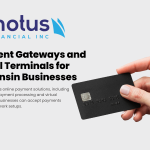

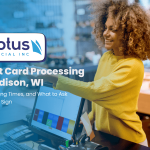

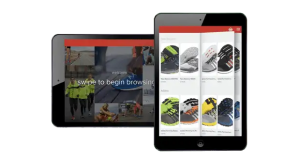
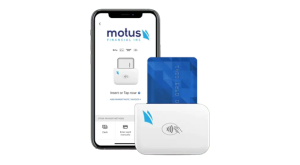
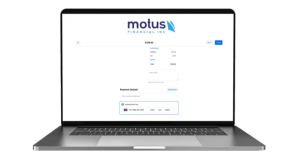
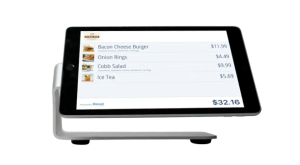 Our POS systems are designed to streamline in-store transactions. With features like inventory management, sales reporting, and customer tracking, our POS solutions help you run your business more efficiently. Our terminals are compatible with various payment methods, including chip cards, contactless payments, and mobile wallets.
Our POS systems are designed to streamline in-store transactions. With features like inventory management, sales reporting, and customer tracking, our POS solutions help you run your business more efficiently. Our terminals are compatible with various payment methods, including chip cards, contactless payments, and mobile wallets.
